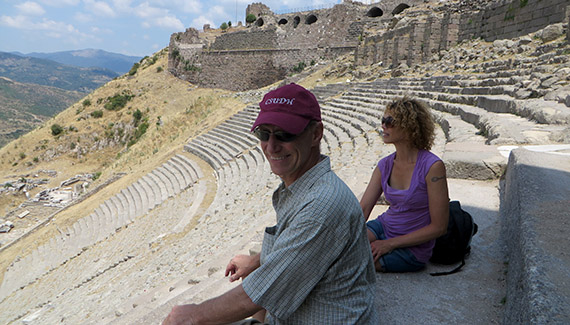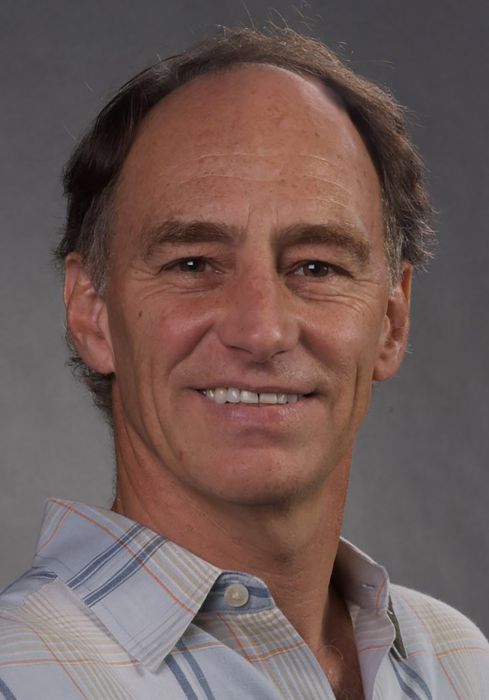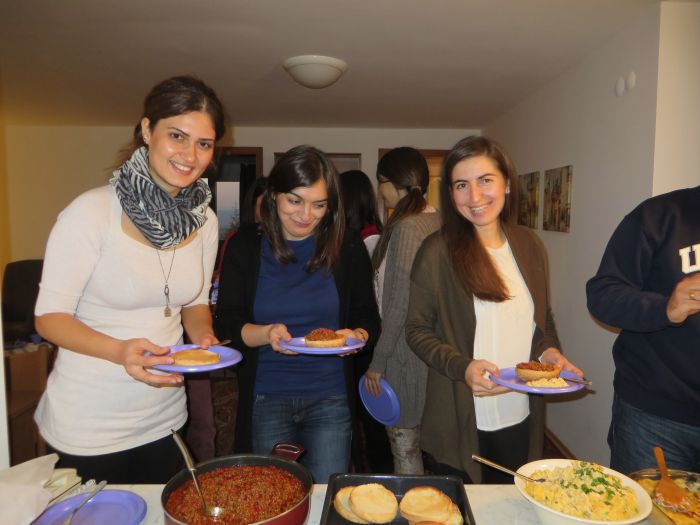
Kim Trimble, a professor of teacher education at California State University, Dominguez Hills (CSUDH), was thrilled to be able to return to Turkey as a Fulbright U.S. Scholar, and relive one of the most “rewarding personal and professional” experiences of his life.
Trimble had previously spent two one-year stints–in 2003-04 and 2009-10–living and teaching in Turkey through the Fulbright program and was honored to be awarded an unprecedented third award.
As with his prior Fulbright posts, Trimble was a visiting faculty member at Bilkent University in Ankara, Turkey, where he taught in the Graduate School of Education’s Master of Arts in Teaching English as a Foreign Language program (MA TEFL). Such a program is particularly important, noted Trimble, because English proficiency is required of Turkish students who want to go to college.

“In Turkey, most coursework at universities is taught in English. When Turkish high school students enroll in a university, they take an English placement examination to gauge their ability to do coursework in English,” said Trimble, who returned to the U.S. in August. “If they do not score at a certain level, they [the freshmen] take a semester or a full year of intensive English instruction.”
Trimble was one of three CSUDH professors to receive a Fulbright Scholarship for the 2014-2015 academic year, including Kate Fawver, professor of history, who taught in Russia, and Nancy Erbe, professor of negotiation, conflict resolution and peace building, who served as Fulbright distinguished chair at Pontifícia Universidade Católica in Rio de Janeiro in the spring.
CSUDH was among the nation’s top producers of Fulbright scholars in the U.S. last academic year, and is a sponsor of TedXFulbright 2015 on Sept. 26 in Santa Monica.
The Fulbright program is sponsored by the U.S. Department of State and is one of the most prestigious international education exchange programs in the world designed to increase mutual understanding between peoples from the U.S. and other countries. The core Fulbright U.S. Scholars program sends approximately 800 American scholars and professors each year to more than 125 countries to teach and conduct research in a wide variety of academic and professional fields.
The master’s program Trimble taught in at Bilkent, the first private (foundational) university in Turkey, was specifically designed to provide university-level English-as-a-foreign-language instructors an opportunity to earn an advanced TEFL degree in one year. The program is highly competitive, Trimble said.
“Some students have been waiting several years to be selected by the program and their universities to attend. The program is very intensive: students take two semesters of coursework and write an original-research thesis in English (80-150 pages) in nine months,” he said. “Fortunately, the students are highly motivated and very hard-working. Since a small number of them are selected each year (12 last year), the students form a very tight group, and work closely with one another on their coursework and theses.”

Trimble’s students’ previous teaching experience is unique in Turkey, which fit well with his teaching style.
“University teaching in Turkey is more traditional than in the United States, relying heavily upon lecture and traditional evaluation of students by final examinations,” said Trimble, a Long Beach resident who has been teaching at CSUDH since 1990. “Because the students in the program in which I was teaching were language teachers, they were much more familiar with collaborative approaches to teaching, and adapted quickly to my more interactive style of teaching.”
Trimble finds Turkey and its rich cultural and historical heritage to be “fascinating,” noting that many places and events that people associate with ancient Greece. They include Helen of Troy, Herodotus, the “father of history,” and Galen of Pergamon, known as one of the most accomplished medical thinkers of antiquity, who all lived in Turkey and not present-day Greece.
“As the literal bridge between Europe and Asia, Turkey has traces of the scores of cultures and people who have come through and settled there,” he said. “At the same time, it is going through a rapid period of change, with major migrations from the countryside to the cities, and the accompanying economic, social, and political challenges that these shifts are creating.”
Trimble enjoyed his off time exploring Turkey and its culture, and meeting and sharing with locals the experiences he was having there, but he is also glad to be back teaching at CSUDH this fall.
“You are considered a guest in their country, and it would be almost unthinkable to treat your guests rudely. In addition, most people are curious about your experience in Turkey,” said Trimble. “As Turks are very proud of their country, we were frequently asked ‘How do you like Turkey?’ Fortunately, it was not hard to talk about the many wonderful things we saw and experienced there.
“While my students in Turkey were very bright and highly disciplined, I have very much enjoyed being back in the classroom here at Dominguez Hills,” he added. “The energy, enthusiasm, and diverse experiences of our students creates a wonderful environment to teach in, which I missed while in Ankara.”